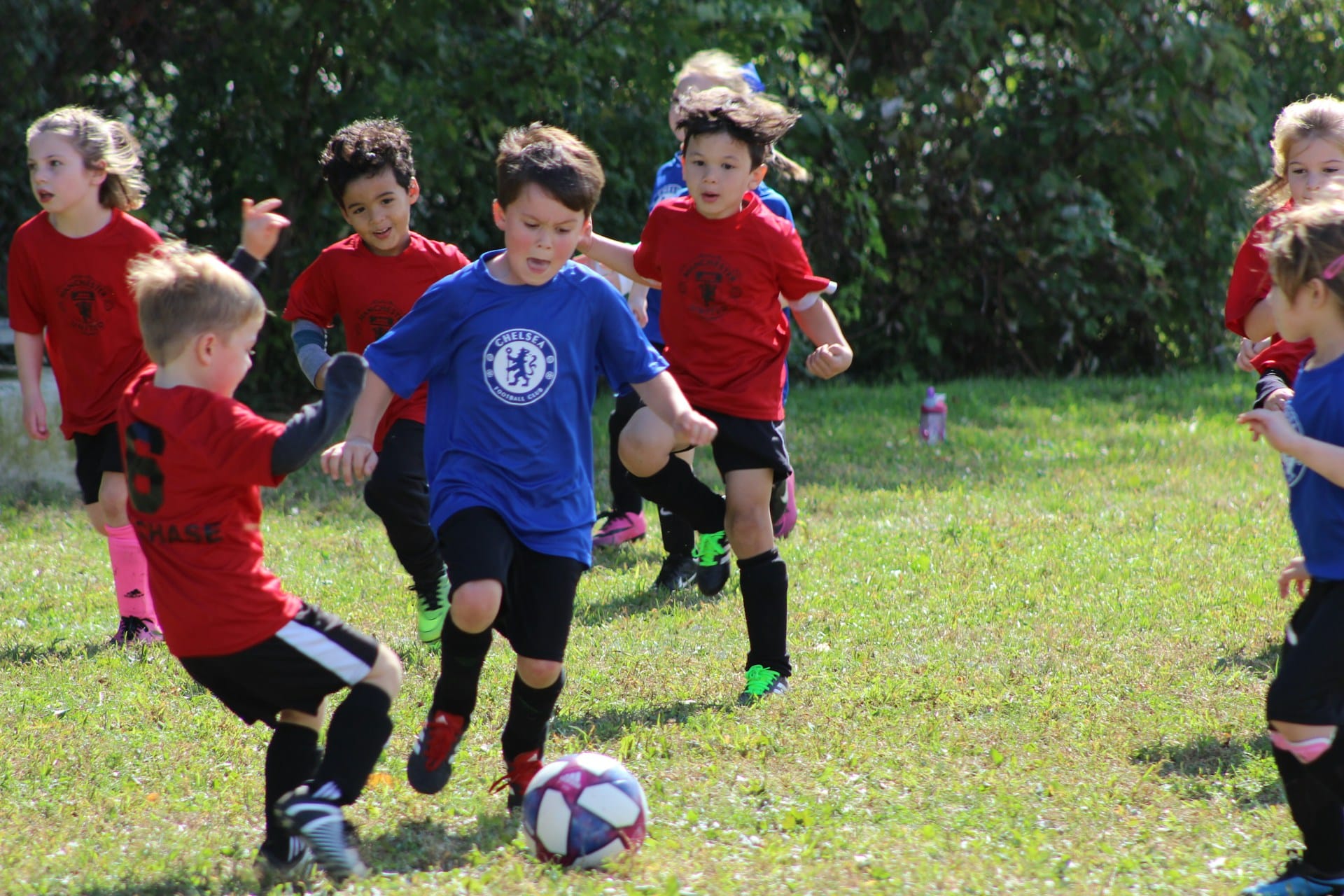As you may know, sports are often associated with physical benefits such as improved strength, endurance and coordination. However, many may overlook the significant impact that sports can have on the emotional and mental development of children. This is not a facet to be ignored as the advantages that come with sports participation extend far beyond the physical realm.
By engaging in sports, children can acquire vital social skills, develop a stronger sense of self-esteem, and improve their mental health. Let’s delve deeper into this less obvious, yet equally important aspect of sports, and discover how it can shape a child’s mental and emotional development.
Sujet a lire : What are the legal and ethical considerations in sports-related research and experimentation?
The Link Between Sports and Social Skills
Before we dive into the intricacies of this topic, it’s worth noting that sports are not just about winning or losing. They are, in essence, social activities that require interaction and team cooperation.
Through participation in team sports, children learn essential social skills like cooperation, communication, and conflict resolution. They learn to respect their opponents, accept defeat gracefully, and celebrate victories modestly. The concept of fair play and good sportsmanship are not merely sports morals, but life skills that can help children navigate their social environment more effectively.
Dans le meme genre : How do athletes use sports science to recover and rehabilitate from injuries?
Moreover, sports teach children the importance of adhering to rules, understanding roles within a team, and valuing the significance of collective effort. They learn that each player has a role and that the success of the team depends on everyone’s contribution. Such lessons transfer well into other areas of life, such as school and eventually their future work environments.
How Sports Boost Self-Esteem
In the journey of life, self-esteem plays a monumental role in the development of a child. It has a ripple effect on their mental well-being and overall life satisfaction. One way to foster self-esteem in kids is through sports.
Participating in sports gives children a sense of accomplishment. As they acquire new skills, improve their abilities, and achieve personal or team goals, their confidence grows. They begin to believe in their capabilities and grow comfortable with their strengths and weaknesses. This sense of self-assurance instills a positive self-image, fostering healthier self-esteem.
Also, the recognition and praise children receive from coaches, parents, and peers for their sports achievements can significantly boost their self-esteem. They feel acknowledged and valued for their efforts, which in turn increases their self-worth.
The Impact of Sports on Mental Health
We know how sports contribute to the physical wellness of a child. But how about their mental health? Well, you’ll be pleasantly surprised to know that sports can play a significant role in promoting mental health among children.
Regular physical activity is known to improve mood, reduce stress, and alleviate symptoms of anxiety and depression. These benefits are not limited to adults; children too can reap them. Studies show that sports can be an effective tool in managing mental health issues among the youth.
Participating in sports also allows children to vent their frustrations and anger in a healthy manner. It provides them an outlet to channel their energies, helping them cope with negative feelings and emotions. Moreover, the sense of belonging that comes from being part of a team can provide emotional support, thereby promoting mental well-being.
The Power of Sports in Fostering Positive Youth Development
Lastly, let’s explore how sports contribute to positive youth development. This concept refers to the process through which young people acquire the skills, values, and knowledge necessary to thrive in life.
Sports offer a unique platform for children to experience both success and failure. They learn to cope with disappointments, persist in the face of challenges, and display resilience—essentials for positive youth development.
Moreover, sports provide a structured environment where children can practice discipline, learn to set and achieve goals, and understand the importance of hard work and dedication. These experiences translate well into their academic, personal, and eventually professional lives.
In conclusion, the impact of sports on a child’s mental and emotional development is profound. The benefits extend beyond physical wellness, touching on various aspects of their social, mental, and emotional lives. So, let not the importance of sports in the development of a child be understated or overlooked. Let’s encourage our children to participate more in sports, for the sake of their comprehensive well-being.
The Power of Physical Activity in Enhancing Psychological and Social Health
Having explored the importance of sports in social skill development and self-esteem, let’s now shift our focus to the profound psychological and social benefits that children stand to gain from sports participation.
Physical activity, on its own, is a powerful tool for enhancing mental health. It has been widely acknowledged that regular exercise helps to improve mood, decrease anxiety, and alleviate symptoms of depression. However, sports, particularly team sports, go a step further. They not only offer these health benefits but also provide a unique social environment that supports mental wellbeing.
Team sports are often a melting pot of diverse individuals, each bringing their unique skills and personalities to the table. Participating in such a setting helps children develop a deeper understanding of diversity, tolerance, and inclusivity. It allows them to learn how to treat everyone with respect and dignity, regardless of their abilities or backgrounds. This understanding is key in embracing diversity and fostering harmonious relationships in their later lives.
Moreover, playing a team sport also provides young people with the opportunity to form meaningful relationships with their peers. The camaraderie fostered among teammates goes a long way in reducing feelings of loneliness and isolation, some of the significant contributors to mental health problems among the youth. They also learn to support and rely on each other in both victory and defeat, experiences that help develop empathy and emotional intelligence.
In essence, sports participation provides a holistic approach to promoting psychological and social health among children.
Implications of Sports on the Lives of Adolescents and Young Athletes
Moving forward, let’s examine how the benefits of sports extend to adolescents and young athletes. Adolescence is a critical developmental stage characterized by numerous physical, emotional, and social changes. Engaging in sports during this tumultuous period can help alleviate some of the challenges that come with these transitions.
High school sports, for example, offer a structured environment that helps adolescents navigate this stage of their lives. Participating in these activities can enhance their mental well-being by providing a sense of belonging, boosting their confidence, and helping them cope with stress and anxiety.
Moreover, the discipline, hard work, and perseverance required in sports can significantly impact their academic performance. Many studies have shown a positive correlation between sports participation and academic achievement among high school students. These life skills learned through sports can also set them up for success in their future careers and personal lives.
For young athletes aiming for professional sports careers, early sports participation offers opportunities to develop the advanced skills necessary for high-level performance. It also helps them understand the expectations and demands of a career in sports, preparing them mentally and emotionally for what lies ahead.
Undoubtedly, playing sports can have a lasting impact on the lives of children, adolescents, and young athletes.
Conclusion
Sports play a pivotal role in the mental and emotional development of children. From enhancing social skills and self-esteem to promoting mental health and positive youth development, the benefits of sport participation are far-reaching.
In a nutshell, sports equip children with valuable life skills that extend beyond the playing field. They learn to embrace diversity, respect others, persist in the face of challenges, and value the power of collective effort. All these contribute to their comprehensive well-being, enhancing their mental, emotional, social, and physical health.
As we move forward into 2024 and beyond, let us continue to champion for increased sports participation among our children. Let’s harness the power of sports, not just for its physical benefits, but also for its invaluable contribution to their overall development.






